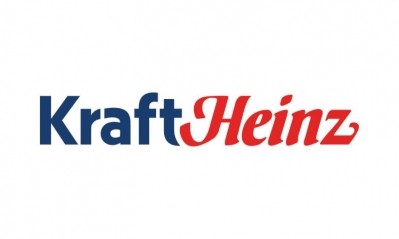Kraft Heinz CEO: ‘In times of uncertainty, consumers turn to brands that they trust. They want to experiment less’

While some commentators argue that Big Food’s resurgence could prove short-lived, and that brands that take their foot off the gas on R&D could find this backfires longer-term, Coca-Cola says it plans to “eliminate a longer tail of smaller projects,” while Mondelēz is “reducing significantly our innovation projects.”
Kraft Heinz, meanwhile, says the introduction of some new SKUs has been delayed, but has not indicated that it plans to cut innovation projects going forward.
Speaking on the Q1 earnings call, Patricio said: “We postponed a lot of innovation. Talking with our customers, we thought – actually, that was the best thing to do because at this moment, what we are doing is actually reducing the number of SKUs that we are producing, so we can have better productivity in our lines. And we both thought it was not the best moment to introduce innovation, so they were postponed.”
‘We postponed a lot of innovation’
Echoing recent comments from the CEO of Conagra Brands, who noted that legacy brands have experiencing something of a renaissance in recent weeks, Patricio added: “I think in times of uncertainty, consumers turn to brands that they trust. They want to experiment less.
“They want to experiment less with new brands. And that's what we're seeing right now. Our brands represent comfort for people. And I think that the consumers are coming back to big brands.
"As a result, our leading iconic brands are growing household penetration in almost every market, especially the developed markets like US, like Canada, like the UK. So I think it's critical that we continue investing behind our brands to reassert the advantage that we have in taste, in performance and in value.
"And I think also that for our customers, reliability and availability are extremely important in this environment. And this is where agility can, with scale, can really set you apart. I think that we are working with our customers in a very, very, very agile and close way.”
He added: “It's our intention to keep the investments on our brands. And even evaluating right now, if we shouldn't even put more to create the momentum, and especially to keep the penetration that we are seeing.”
Marketers have to ‘ask themselves what will happen next, what behaviors will change’
While the company had been planning to provide the market with an update on its strategy this spring, this will now happen in September, he said.
In the meantime, said Patricio, marketers at Kraft Heinz have to “ask themselves what will happen next, what behaviors will change.
“Now we have to think about future consumption if 40% of adults live alone and will eat more meals at home, if kids eat more breakfast and lunches at home versus school or on the run, if new consumers that have come online stay online to their shopping; if consumers will continue consuming big trusted brands, brands that bring them comfort and familiarity in moments of uncertainty; and if drive-through and delivery becomes the norm, how we can be more creative with our foodservice customers and make our products more relevant?”
Three key questions for Kraft Heinz from Bernstein
While Kraft Heinz has seen big declines in its foodservice business, which accounts for c.15% of net sales, it has experienced strong growth in its retail products including mac & cheese, condiments and sauces, ready to drink beverages, and nuts. This was partially offset by lower sales of natural cheese and cold cuts.
Group net sales were up 3.3% to $6.157bn while net income declined 6.7% to $378m.
Going forward, said analysts at Bernstein, three key questions for Kraft Heinz are:
“1) how will the company's Oscar Mayer business handle input cost inflation and possible meat shortages?
2) Will retailers push private label cheese more intensely as economic pressures build?
3) Does the company believe that its recent moves to build liquidity will be enough to weather any additional unforeseen disruption from the pandemic?”
Kraft Heinz has closed, deep-cleaned, then rapidly re-opened, manufacturing facilities in Holland, Michigan, and Springfield, Missouri, after employees tested positive for COVID-19.
How is COVID-19 impacting food/bev industry innovation plans?
Just over half of food & beverage professionals surveyed by product innovation firm Mattson this month say projects and launches have been delayed due to coronavirus, but two thirds are still working on new concepts and products and 50% believe COVID-19 will positively impact the packaged food industry in the long-term.
















